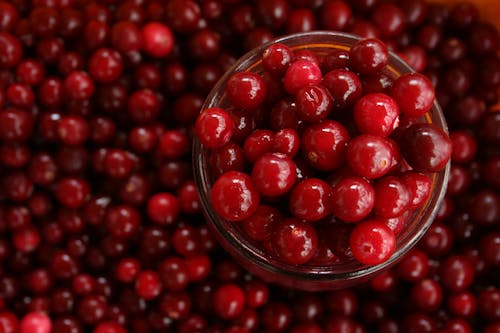Does Eating Cranberry really protect Kidneys? Know more...
Cranberry
 Cranberries are a group of evergreen dwarf shrubs or trailing vines in the subgenus Oxycoccus of the genus Vaccinium. In Britain, cranberry may refer to the native species Vaccinium oxycoccos, while in North America, cranberry may refer to Vaccinium macrocarpon.
Cranberries are a group of evergreen dwarf shrubs or trailing vines in the subgenus Oxycoccus of the genus Vaccinium. In Britain, cranberry may refer to the native species Vaccinium oxycoccos, while in North America, cranberry may refer to Vaccinium macrocarpon.Eating cranberries can also protect your kidneys. Cranberries prevent the development and growth of ulcers and bacteria in your urinary tract, and can help manage current bacteria/ulcers because they make urine more acidic and help keep bacteria from attaching to the inside of the bladder.
Cranberries are high in antioxidants help to improve blood flow through blood vessels (therefore lowering blood pressure over time), protect cells from harmful damage (reducing risk of inflammation or from tumour growth), and reduce the risk of cholesterol buildup in your arteries, they’re a great choice to include as part of an overall healthful diet.
They’re high in vitamin K, a nutrient that helps regulate blood clotting, be sure to check with your doc before sprinting out to the cranberry harvest, since large amounts of vitamin K can interfere with medications you may be taking for heart health.
The skins contain many of the beneficial properties, so your best bet is to add 'em whole to cereals or oats, blend into a smoothie, or use them in cooking and baking when you're after a tart flavour.
Benefits of cranberry
- Control diabetes, diarrheas
- Prevent peptic ulcer, stomach
- Gum diseases - Tooth decay and.cavities.
- Prevent urinary tract infection.
- Inflammation of rheumatoid arthritis.
- gout diseases -arthritis (pain, swelling and stiffness in a joint and big toe)
Juice benefits
- Prevent urinary tract infections.
- Improve digestion
- Drinking too much cranberry juice may cause some side effects such as mild stomach upset and diarrheas in some people. Drinking more than 1 liter per day for a long period of time might increase the chance of getting kidney stones.


Comments
Post a Comment